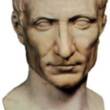Cicero: the life and times of Rome's greatest politician
Description
More Details
9781402576539
9780375507465
9781440754432
9781588360342
Also in this Series
Published Reviews
Choice Review
Cicero is a person who continually attracts modern biographers. This most recent book by Everitt (visiting professor, Nottingham Trent Univ.) has the additional object of locating the orator and politician in his historical and cultural context, hence the book's subtitle. Clearly aiming at a general audience, the author has produced an eminently readable, if not entirely accurate, portrayal of Rome's greatest orator. Because he uses ancient sources uncritically and consults only a few modern works of a general nature, his narrative is sometimes oversimplified or erroneous. Everitt's refreshingly sympathetic portrayal of Cicero as an individual, however, has much in common with the more scholarly treatment of Christian Habicht (Cicero the Politician, CH, May'90). Everitt's Cicero has a sense of humor, can be self-deprecating in private, forgiving of friends and family, and intensely loyal to his conception of the Republic. Everitt convincingly attributes Cicero's irritating (for many, both ancient and modern) boastfulness to his need to keep himself in the limelight to compete with patrician aristocrats. Biographical chronology, plans, and maps are helpful; lack of photographs and the brief and not up-to-date bibliography are less so. Nonspecialists and not a few scholars will enjoy this book. General and undergraduate collections. R. I. Curtis University of Georgia
Booklist Review
Everitt's masterful biography draws on Cicero's letters to his friend Atticus to give a clear picture of the famous Roman orator, noting both his brilliance and his faults. A staunch defender of the Roman Republic, Cicero spent his political career battling foes such as Julius Caesar and Mark Antony, whose rise to power spelled doom for the ailing republic. Cicero followed the traditional route to power, moving through the political offices to become a consul in 63 B.C.E. He also was an advocate of high repute, boldly defending citizens who had fallen out of favor with those in power. During his consulship, Cicero pursued the seditious Catalina, whose attempted attacks on the senate were ultimately halted by Cicero's drastic measures. Cicero's actions come back to haunt him, however, when a tribune he testified against has him banished from Rome. Ever fickle, popular opinion swings back in Cicero's favor, and he returns to Rome, but he is forced to compromise his beliefs to stay in favor with those in power. Everitt does a superb job of bringing the last days of the Roman Republic to life, and he accurately portrays the tenuous political situation that marked the times. Most important, he creates a sympathetic portrait of Cicero, a man weighed down by the necessity of "moving with the times." --Kristine Huntley
Publisher's Weekly Review
Using Cicero's letters to his good friend Atticus, among other sources, Everitt recreates the fascinating world of political intrigue, sexual decadence and civil unrest of Republican Rome. Against this backdrop, he offers a lively chronicle of Cicero's life. Best known as Rome's finest orator and rhetorician, Cicero (103 -43 B.C.) situated himself at the center of Roman politics. By the time he was 30, Cicero became a Roman senator, and 10 years later he was consul. Opposing Julius Caesar and his attempt to form a new Roman government, Cicero remained a thorn in Caesar's side until the emperor's assassination. Cicero supported Pompey's attempts during Caesar's reign to bring Rome back to republicanism. Along the way, Cicero put down conspiracies, won acquittal for a man convicted of parricide, challenged the dictator Sulla with powerful rhetoric about the decadence of Sulla's regime and wrote philosophical treatises. Everitt deftly shows how Cicero used his oratorical skills to argue circles around his opponents. More important, Everitt portrays Cicero as a man born at the wrong time. While Cicero vainly tried to find better men to run government and better laws to keep them in order, Republican Rome was falling down around him, never to return to the glory of Cicero's youth. A first-rate complement to Elizabeth Rawson's Cicero or T.N. Mitchell's monumental two-volume biography, Everitt's first book is a brilliant study that captures Cicero's internal struggles and insecurities as well as his external political successes. Maps. (On sale June 11) (c) Copyright PWxyz, LLC. All rights reserved
Library Journal Review
Everitt's first book is a good read that anyone interested in ancient Rome will enjoy. It is also the first one-volume life of the Roman leader in 25 years. To create a work that flowed and was therefore more colorful for the lay reader, Everitt, the former secretary-general of the Arts Council for Great Britain, has taken liberties when describing a person or a place that may annoy scholars. Yet reading this book is an excellent way to understand the players of the period and the culture that produced them. Bloody, articulate, erudite, sexist, slave-owning-Cicero and his circle were all that, but Everitt is careful to recognize that the orator was a product of his age. This is not strictly a political history; Everitt scrutinizes Roman society in discussing events of the orator's life and, when describing Cicero's marriage, acquaints the reader with various aspects of that institution and the home of the era. Throughout, he is willing to admit when the evidence for a theory is weak and when he is extrapolating from the assumptions of scholars. Recommended for public and undergraduate collections.-Clay Williams, Hunter Coll. Lib., New York (c) Copyright 2010. Library Journals LLC, a wholly owned subsidiary of Media Source, Inc. No redistribution permitted.
Kirkus Book Review
Comprehensive, accessible survey of the personal and political life of lawyer, politician, philosopher, and crank Marcus Tullius Cicero. Rome's most celebrated orator and dogged protector of the constitution had "that passionate affection for Rome and its traditions that many newcomers feel when they join an exclusive club." Understandable, as Cicero was born to the local aristocracy of Arpinum, a town 70 miles south and 3 days journey from the empire's capital. Britisher Everitt presents a picture of a privileged son of the local bourgeoisie who lives out his father's ambitions by entering public life in Rome, first as a gifted lawyer with a vicious tongue, then as a politician committed to preserving Rome's political traditions. Unfortunately for Cicero, as a contemporary of Julius Caesar, he was uniquely placed to witness the end of the senate's power. Unraveling the monstrous tangle of elections, massacres, and military campaigns that twisted through the elastic empire, Everitt exhibits a remarkably deft touch, as well as "that endearing sense of the ridiculous" he ascribes to Cicero himself. Along with the ponderous political system, Everitt discusses the mobs that ran the streets, Roman housing conditions, the art of folding a toga, religious ceremonies, Cleopatra's brief involvement with the empire, Cicero's love for his daughter, the system of patronage, and Cicero's advances and retreats in the public eye. Cicero's great literary works on oratory, Greek philosophy, and self-consolation (a lost work, written after the death of his daughter) are mentioned, but discussed in less detail than contemporary events. Most delightful is Everitt's contextualization of Cicero's everyday utterances, quoted from speeches and a lifetime of letters to his dear friend Atticus; over 2,000 years later, the words remain bitingly fresh. Masterfully lucid and compelling; sure to be required reading in the Cicero canon.
Booklist Reviews
Everitt's masterful biography draws on Cicero's letters to his friend Atticus to give a clear picture of the famous Roman orator, noting both his brilliance and his faults. A staunch defender of the Roman Republic, Cicero spent his political career battling foes such as Julius Caesar and Mark Antony, whose rise to power spelled doom for the ailing republic. Cicero followed the traditional route to power, moving through the political offices to become a consul in 63 B.C.E. He also was an advocate of high repute, boldly defending citizens who had fallen out of favor with those in power. During his consulship, Cicero pursued the seditious Catalina, whose attempted attacks on the senate were ultimately halted by Cicero's drastic measures. Cicero's actions come back to haunt him, however, when a tribune he testified against has him banished from Rome. Ever fickle, popular opinion swings back in Cicero's favor, and he returns to Rome, but he is forced to compromise his beliefs to stay in favor with those in power. Everitt does a superb job of bringing the last days of the Roman Republic to life, and he accurately portrays the tenuous political situation that marked the times. Most important, he creates a sympathetic portrait of Cicero, a man weighed down by the necessity of "moving with the times." ((Reviewed May 15, 2002)) Copyright 2002 Booklist Reviews
Library Journal Reviews
Everitt's first book is a good read that anyone interested in ancient Rome will enjoy. It is also the first one-volume life of the Roman leader in 25 years. To create a work that flowed and was therefore more colorful for the lay reader, Everitt, the former secretary-general of the Arts Council for Great Britain, has taken liberties when describing a person or a place that may annoy scholars. Yet reading this book is an excellent way to understand the players of the period and the culture that produced them. Bloody, articulate, erudite, sexist, slave-owning-Cicero and his circle were all that, but Everitt is careful to recognize that the orator was a product of his age. This is not strictly a political history; Everitt scrutinizes Roman society in discussing events of the orator's life and, when describing Cicero's marriage, acquaints the reader with various aspects of that institution and the home of the era. Throughout, he is willing to admit when the evidence for a theory is weak and when he is extrapolating from the assumptions of scholars. Recommended for public and undergraduate collections.-Clay Williams, Hunter Coll. Lib., New York Copyright 2002 Cahners Business Information.
Publishers Weekly Reviews
Using Cicero's letters to his good friend Atticus, among other sources, Everitt recreates the fascinating world of political intrigue, sexual decadence and civil unrest of Republican Rome. Against this backdrop, he offers a lively chronicle of Cicero's life. Best known as Rome's finest orator and rhetorician, Cicero (103 -43 B.C.) situated himself at the center of Roman politics. By the time he was 30, Cicero became a Roman senator, and 10 years later he was consul. Opposing Julius Caesar and his attempt to form a new Roman government, Cicero remained a thorn in Caesar's side until the emperor's assassination. Cicero supported Pompey's attempts during Caesar's reign to bring Rome back to republicanism. Along the way, Cicero put down conspiracies, won acquittal for a man convicted of parricide, challenged the dictator Sulla with powerful rhetoric about the decadence of Sulla's regime and wrote philosophical treatises. Everitt deftly shows how Cicero used his oratorical skills to argue circles around his opponents. More important, Everitt portrays Cicero as a man born at the wrong time. While Cicero vainly tried to find better men to run government and better laws to keep them in order, Republican Rome was falling down around him, never to return to the glory of Cicero's youth. A first-rate complement to Elizabeth Rawson's Cicero or T.N. Mitchell's monumental two-volume biography, Everitt's first book is a brilliant study that captures Cicero's internal struggles and insecurities as well as his external political successes. Maps. (On sale June 11) Copyright 2002 Cahners Business Information.




































